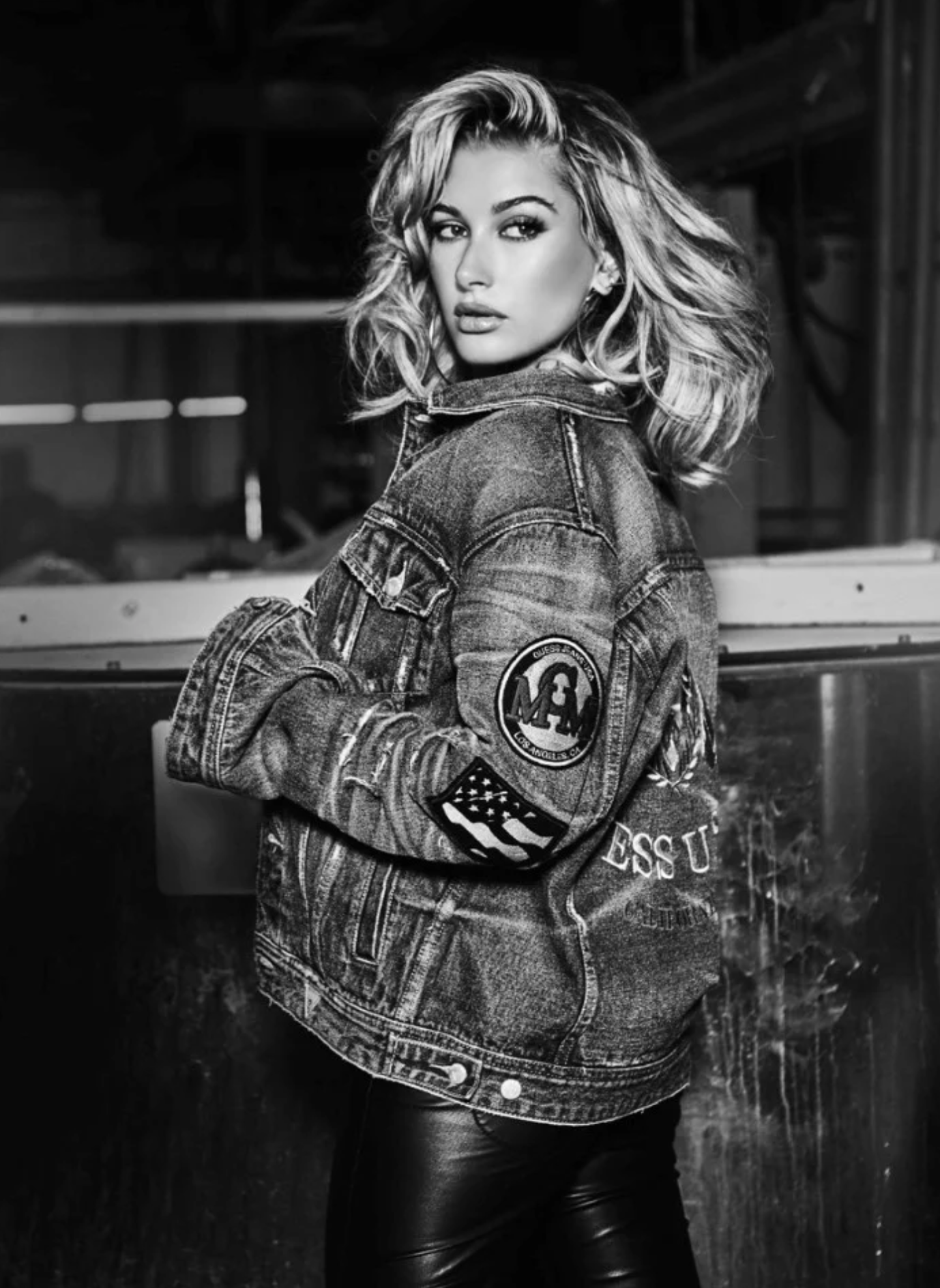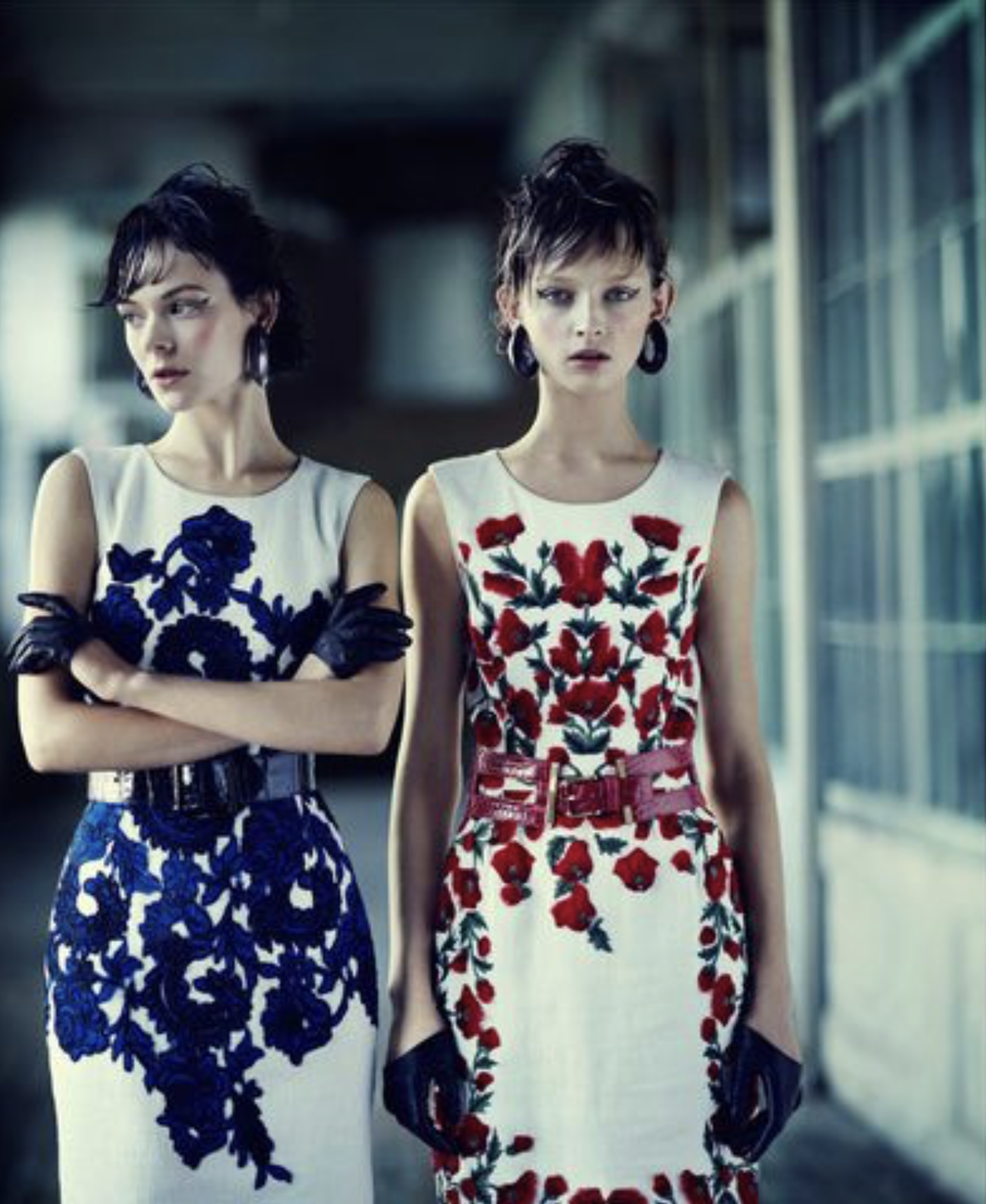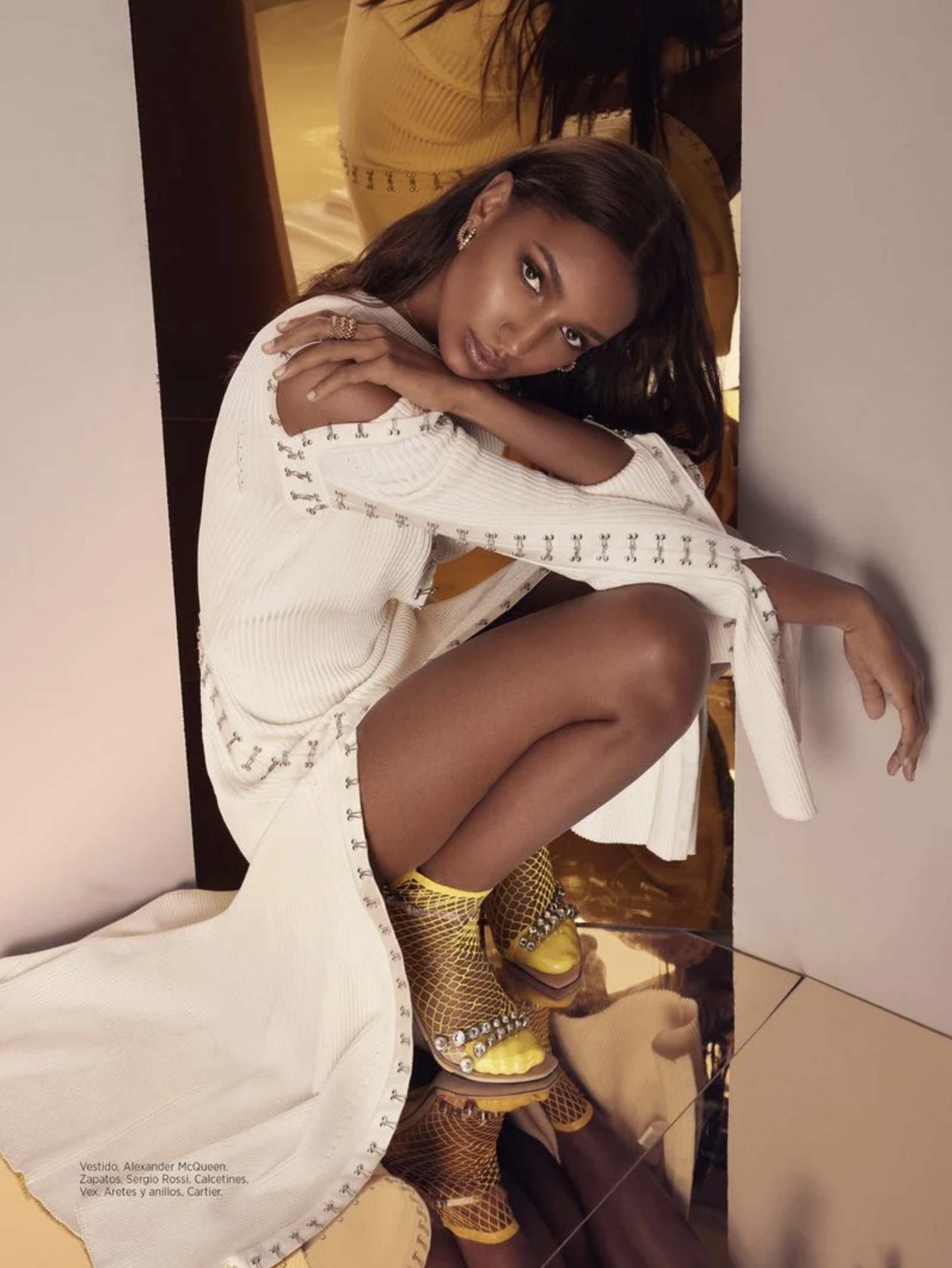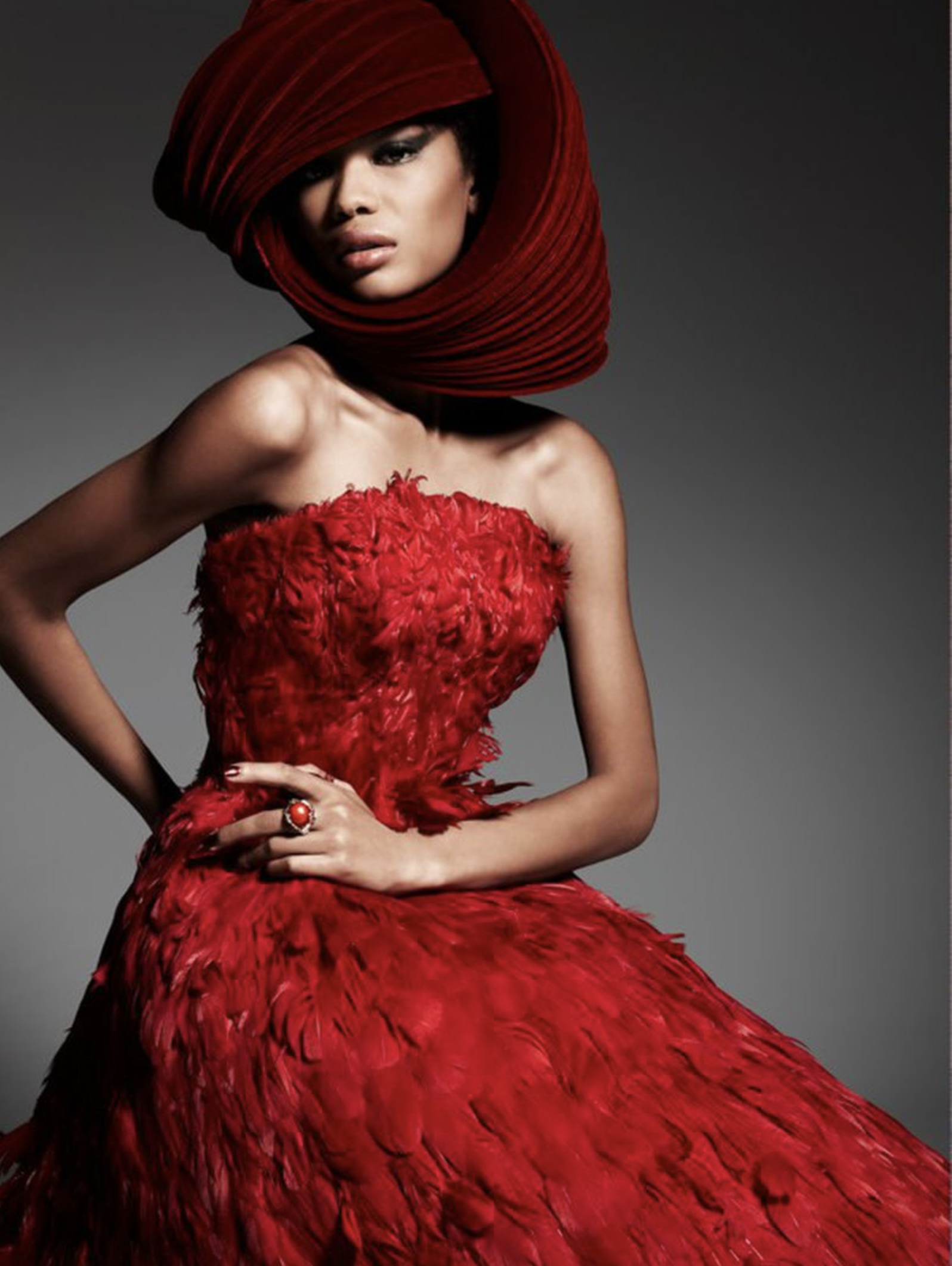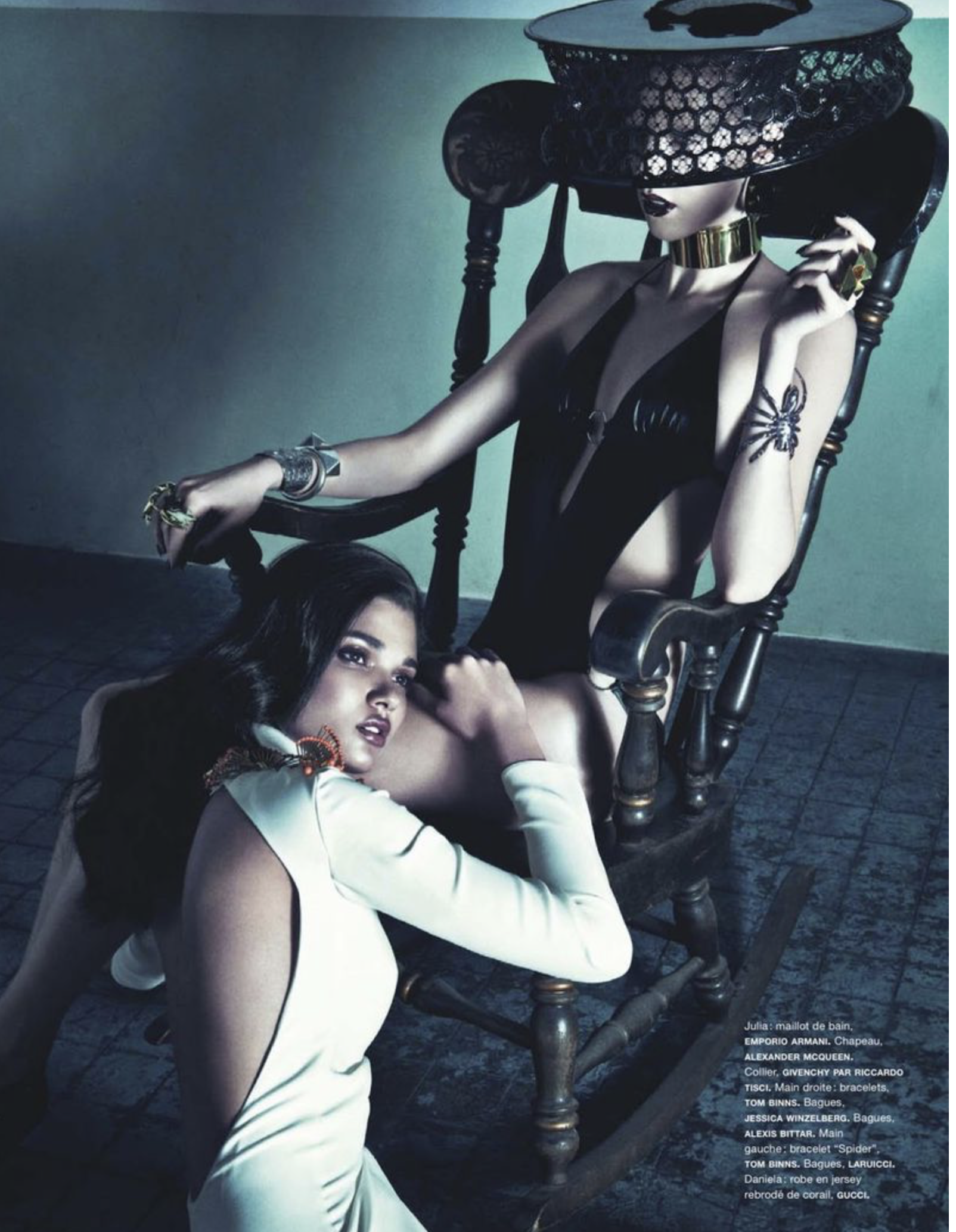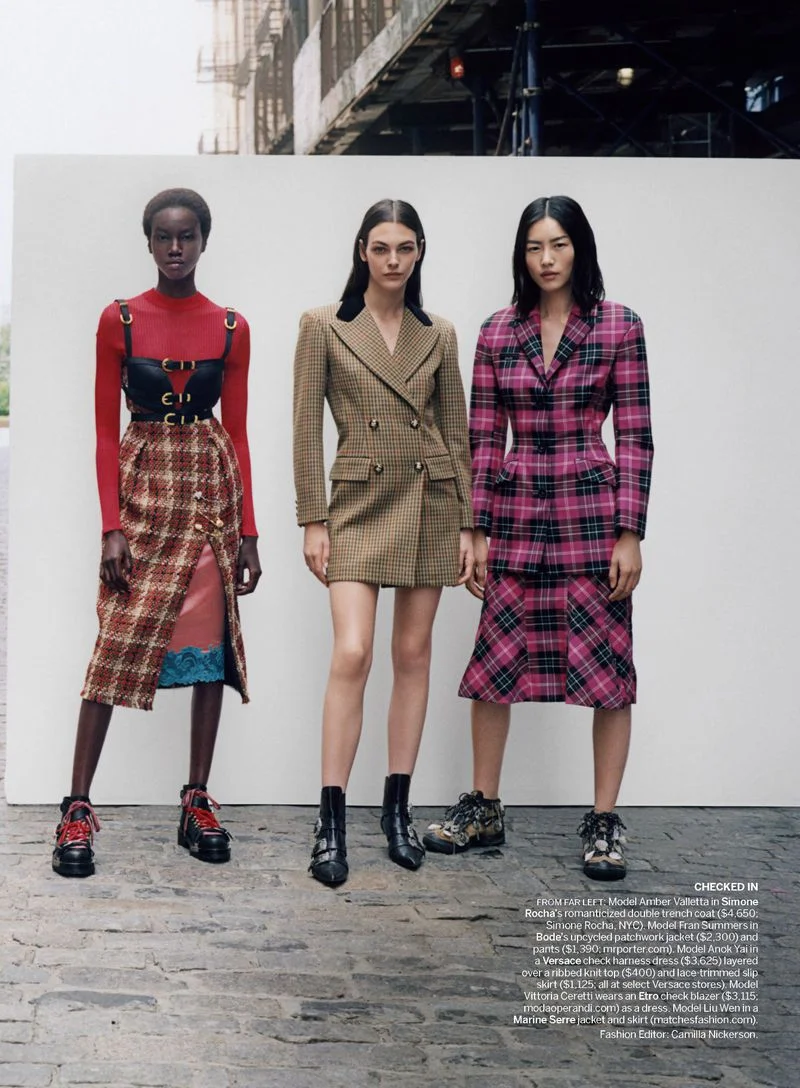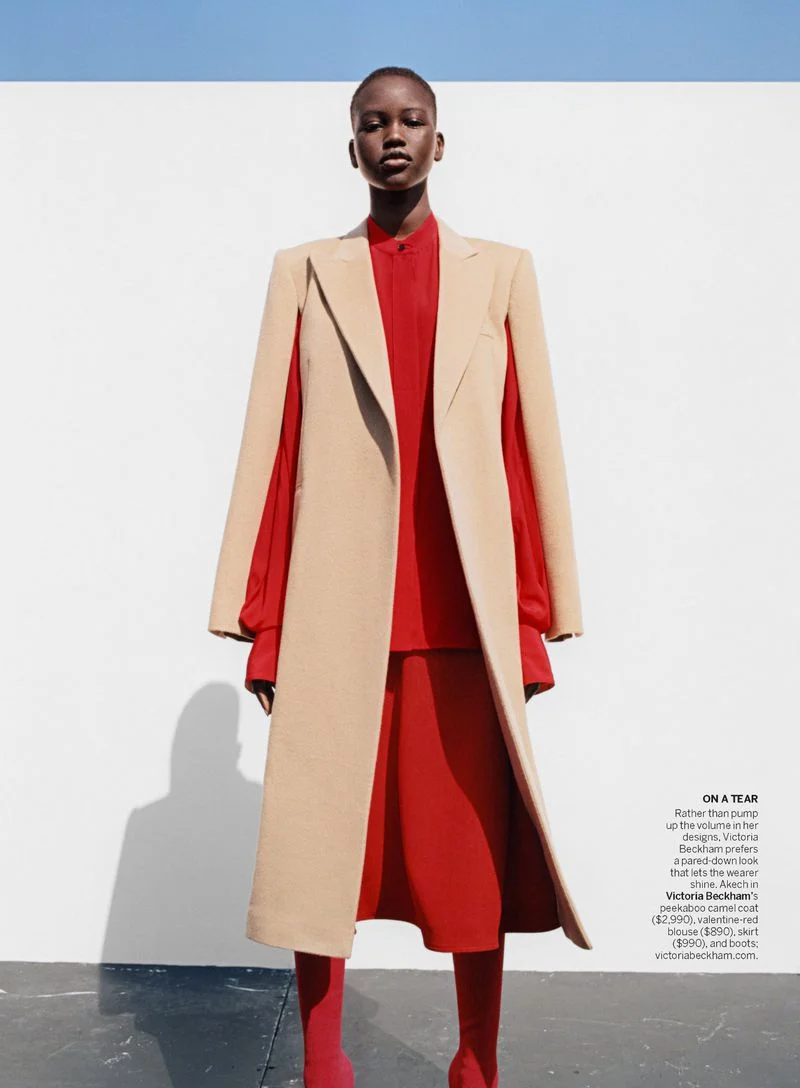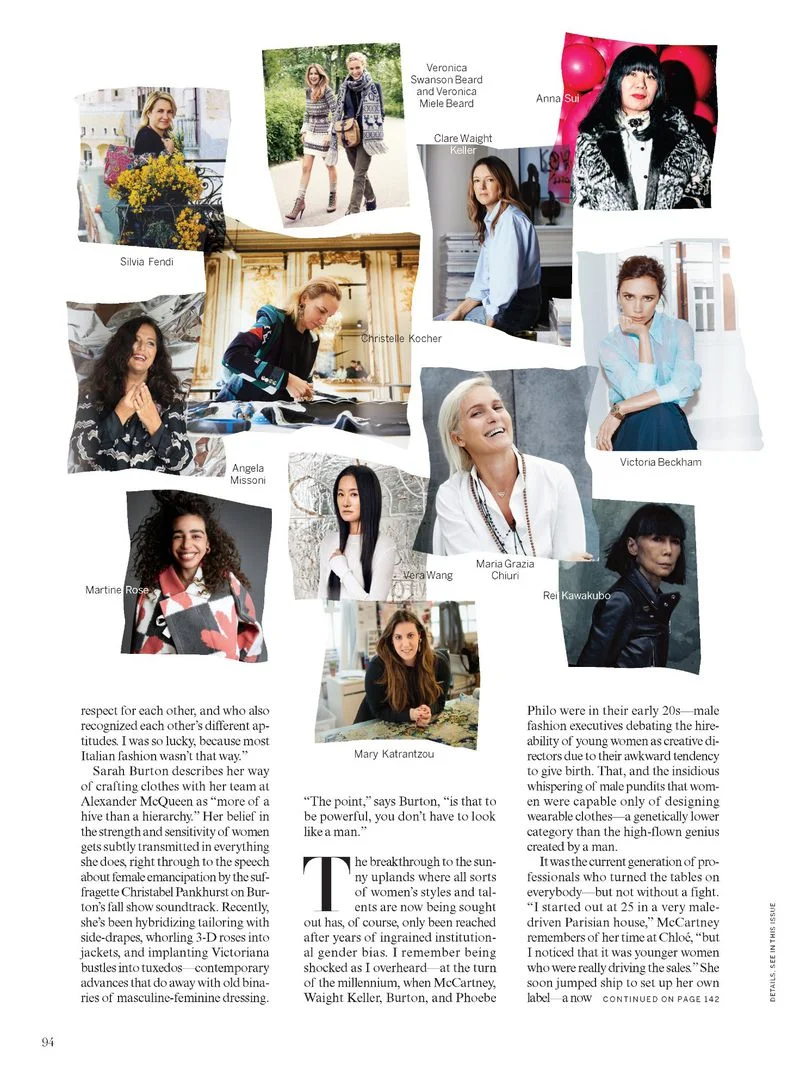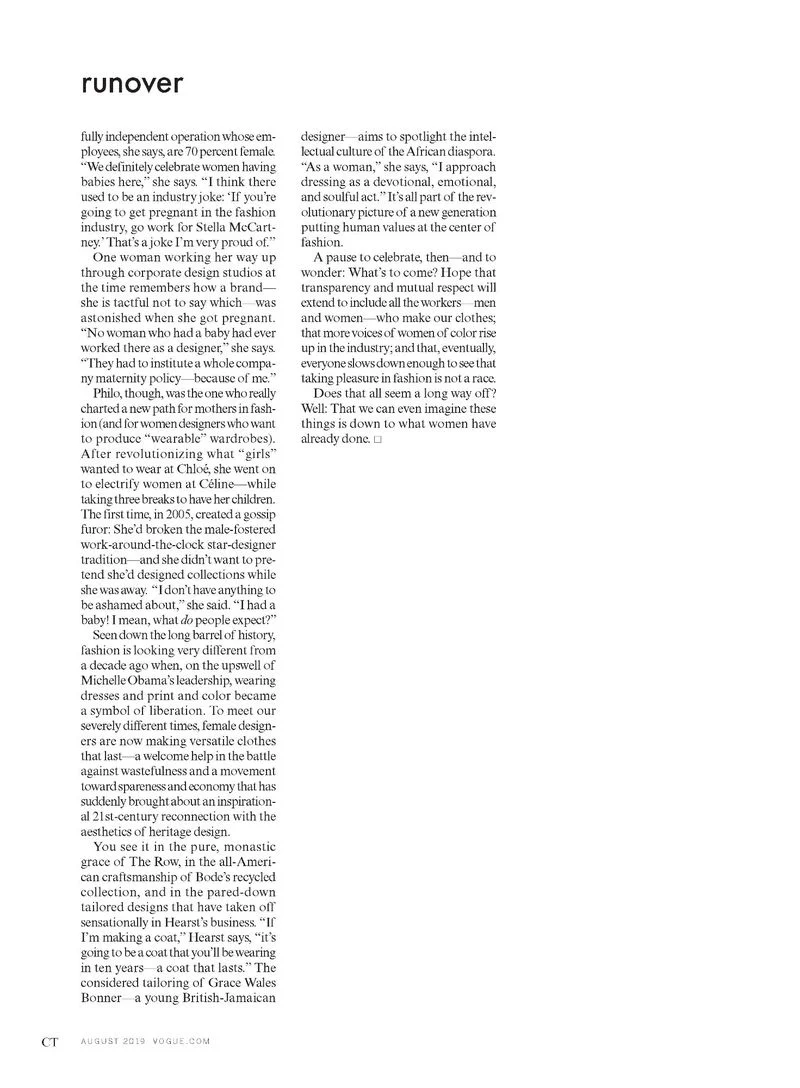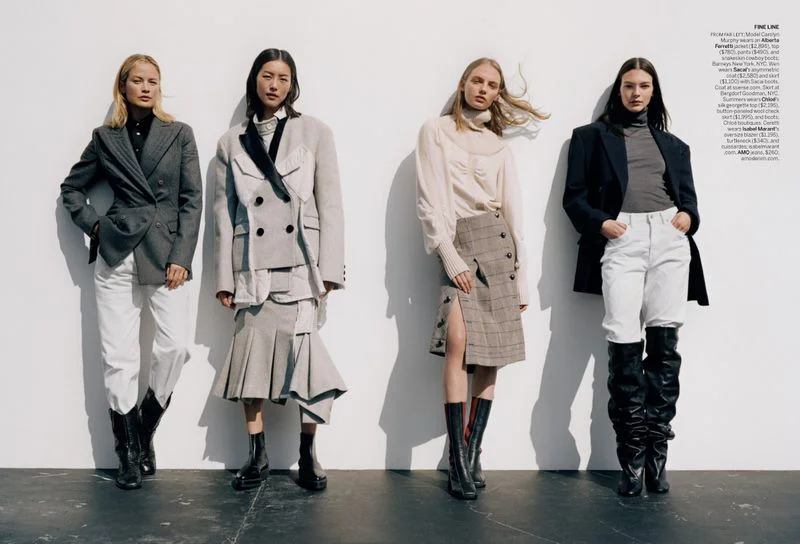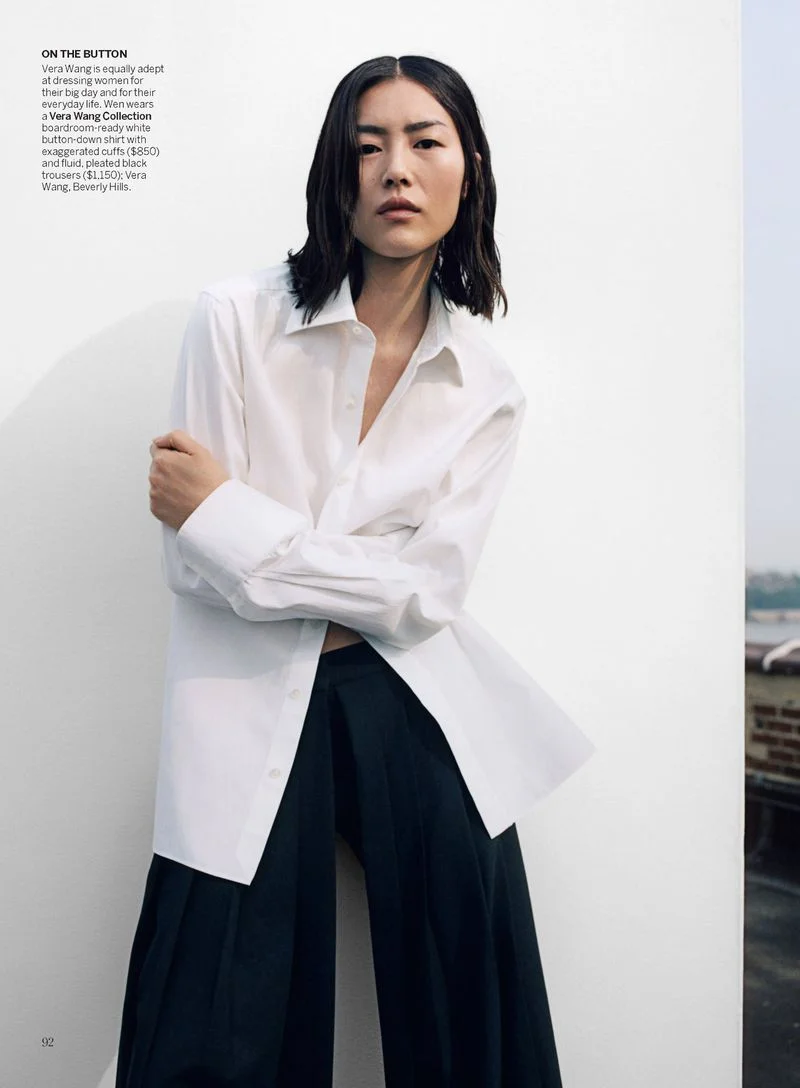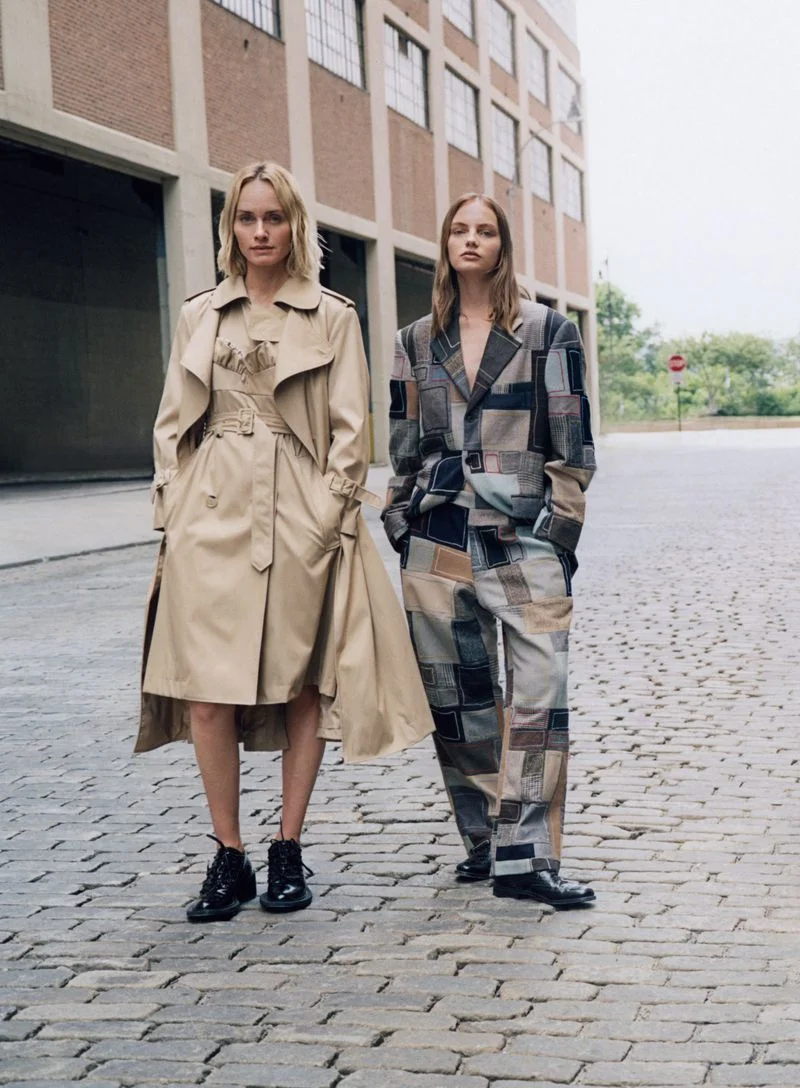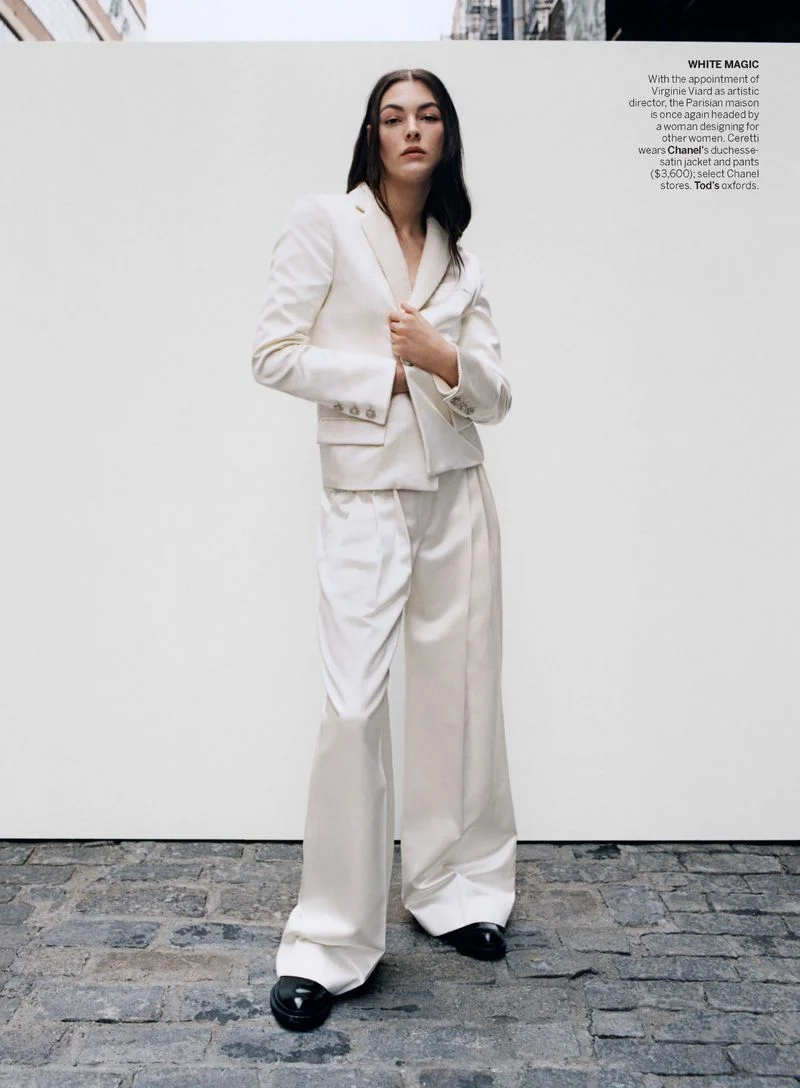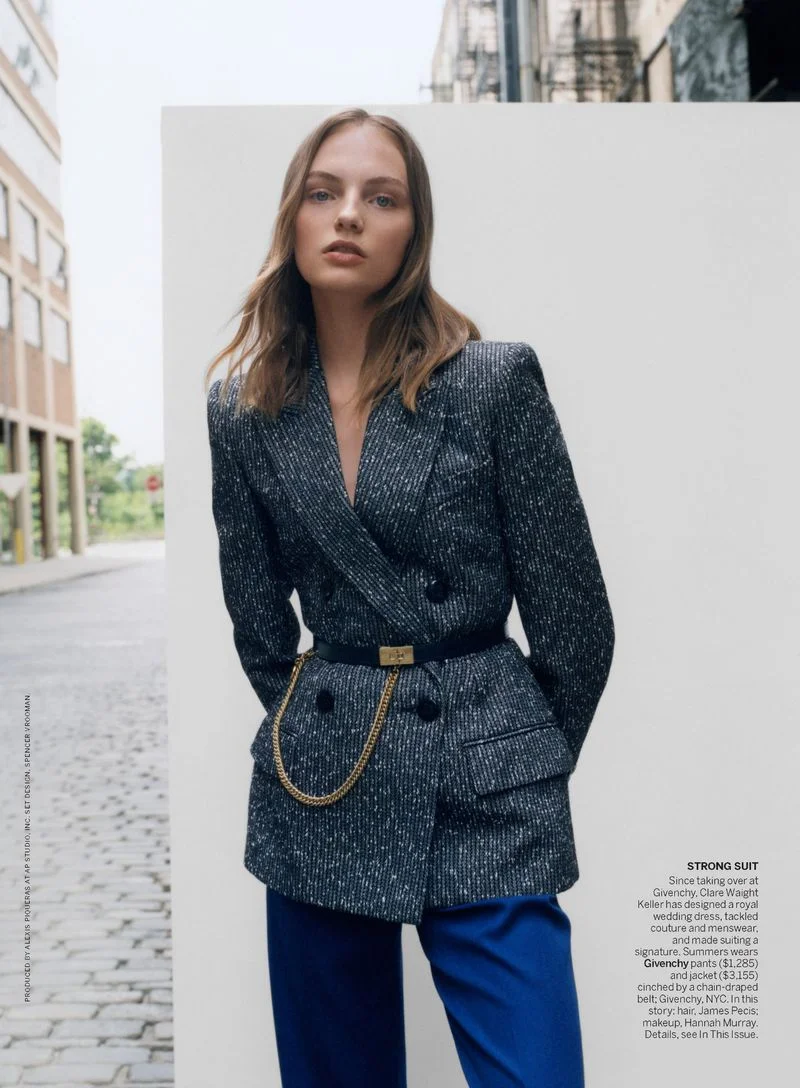Zoe Ghertner Captures Vogue US 'The Present Is Female': Designers Behind Fashion Revolution
/Sarah Mower is the first person voice behind Vogue’s August 2019 in-depth ‘The Present Is Female: The Designers Behind a Fashion Revolution.’
A FEMALE CULTURE runs far and wide across the landscape of 21st-century fashion. It’s there at the top of the canopy, in major Parisian houses; it pervades the uprising of young, self-made independents and generations of established entrepreneurs: a multifaceted critical mass of women steadily working to change an industry for the better. What’s remarkable is the way they talk about feeling, their agile ability to intuit the time we live in, and their quiet but steady turning of the fashion world toward the overthrow of bad and old institutional behaviors.
Reading Mower’s opener, it’s impossible not to ask whether or not there’s a key difference in how men designers approach their process vs women. Is a male designer’s motivation to leave his imprint on how women dress in his name different from a female designer’s? Does a female designer even consider certain women as “her” muse, the idealization of “her” vision?
Taking the pulse of the moment through a female lens, Mower touches on the “new normalization of visibility” that includes women leading major houses, from Maria Grazia Chiuri at Christian Dior and Clare Waight Keller at Givenchy to Sarah Burton at Alexander McQueen and Virginie Viard at Chanel. Innumerable major women leaders, meanwhile, have succeeded by doing things in their own ways: Miuccia Prada, Rei Kawakubo, Vivienne Westwood, Donatella Versace, Vera Wang, Alberta Ferretti, and many more.
“Women coming together and sup- porting each other have always been at the core of everything I’ve done as a fashion designer,” says Stella McCartney. “It’s that connective tissue between all of us that truly inspires me.” McCartney’s early advocacy in sustainability and ethics, meanwhile, is fast becoming commonplace—surely the most significant change in values to have hit fashion in years.
The outspokenness of women designers is striking a note of refusal. If the defeat of Hillary Clinton caused one positive reaction, it was the ability to look at the world around us with eyes wide open. When Chiuri, the first woman creative director in the history of Christian Dior, famously put the title of a Chimamanda Ngozi Adichie essay, “We Should All Be Feminists,” on a T-shirt in her debut collection in 2016, it was personal: “I was 51, thinking about all the phases of my life and reflecting on what society puts on a woman as a wife, a daughter, a mother,” she says. “To express your craft in fashion now is not just about making an unbelievable dress—as a designer and as a woman, I think you have a responsibility to read the changing age.”
Especially if your work is deeply embedded in the fashion industry, pop over to Vogue and read Sarah Mower’s entire reflection on why the fashion industry present and future will be female at Vogue.
The editorial features models Adut Akech, Amber Valletta, Anok Yai, Carolyn Murphy, Fran Summers, Jill Kortieve, Liu Wen, Ugbad and Vittoria Ceretti. Camilla Nickerson styles the ensemble for images by Zoe Ghertner./ Hair by James Pecis, makeup by Hannah Murray
Anok Yai by Zoe Ghertner in ‘The Future Is Female’ for Vogue US August 2019.
Vittoria Ceretti by Zoe Ghertner in ‘The Future Is Female’ for Vogue US August 2019.
Carolyn Murply (l), Liu Wen (lc), Fran Summers (rc), Vittoria Ceretti (r) by Zoe Ghertner in ‘The Future Is Female’ for Vogue US August 2019.
Liu Wen by Zoe Ghertner in ‘The Future Is Female’ for Vogue US August 2019.
Amber Valletta (l) and Fran Summers (r) by Zoe Ghertner in ‘The Future Is Female’ for Vogue US August 2019.
Vittoria Ceretti by Zoe Ghertner in ‘The Future Is Female’ for Vogue US August 2019.
Fran Summers by Zoe Ghertner in ‘The Future Is Female’ for Vogue US August 2019.
Ugbad by Zoe Ghertner in ‘The Future Is Female’ for Vogue US August 2019.
